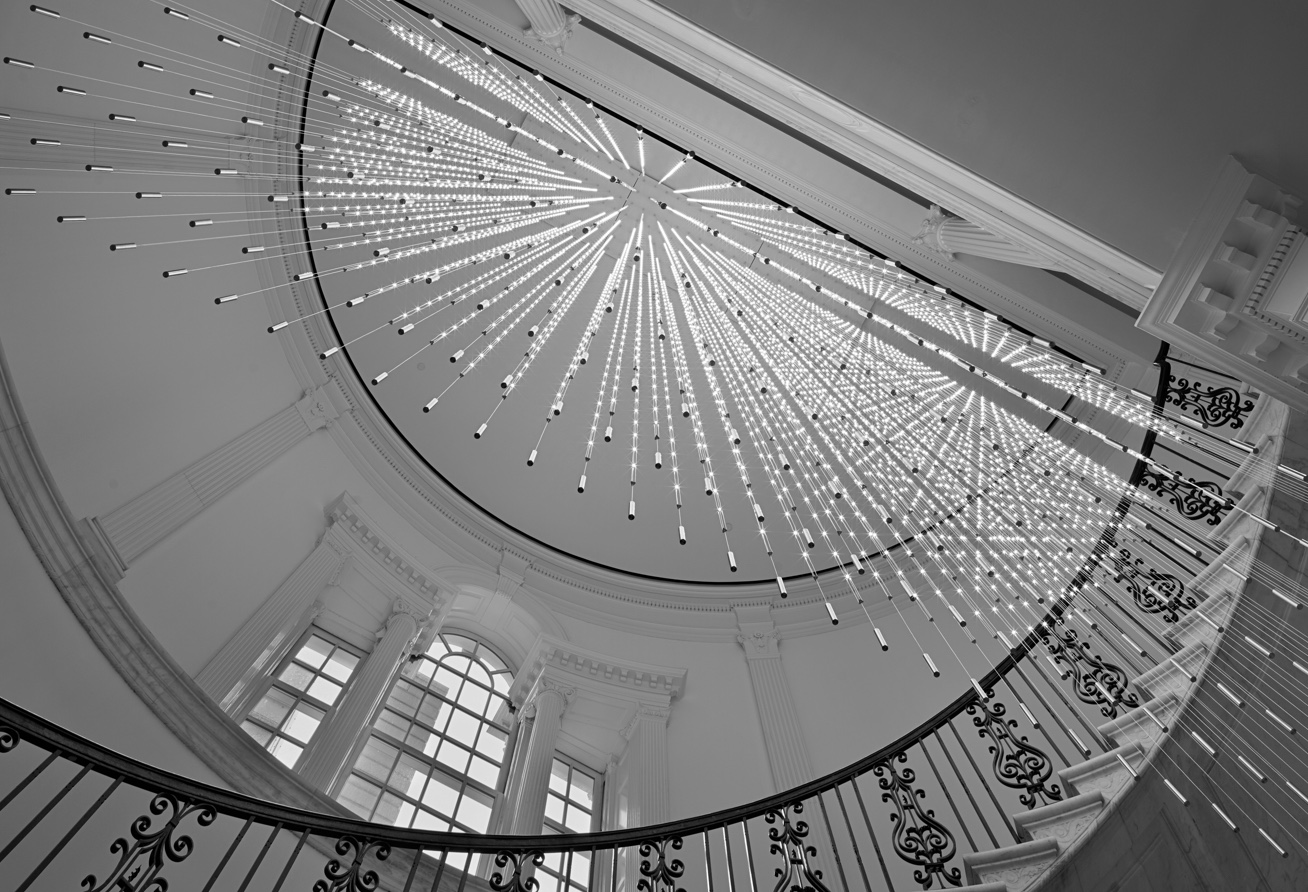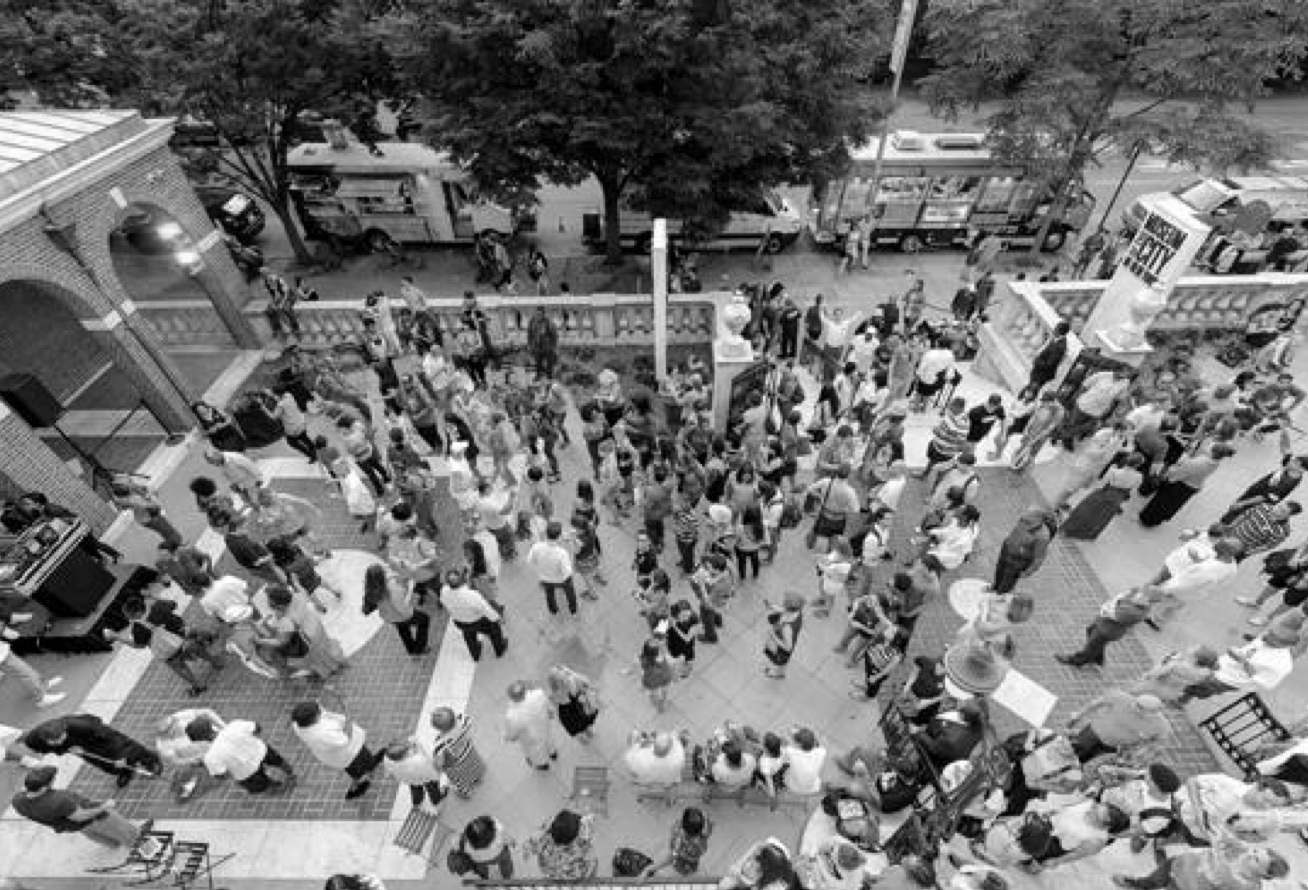South Bronx
Reviving the South Bronx
1970-2012

Back to Exhibitions
In the decades after the new Cross-Bronx Expressway bisected the South Bronx in the 1950s, abandonment and arson claimed large swaths of the borough. Facing diminishing revenues, some landlords were accused of burning their own buildings. The neighborhood also suffered from declining employment, middle-class “white flight,” discriminatory bank lending, and decreased investment by the city and federal government.
Yet in 1976—when there were 33,465 fires in the Bronx—community activists organized the renovation of 360 units of housing on East 163rd Street. “We lost the battle to preserve the neighborhood,” noted Father Louis Gigante of the South East Bronx Community Organization (SEBCO). “Now we hope to rebuild it.”
Joining SEBCO were a host of grassroots organizations, like the Mid-Bronx Desperadoes, Banana Kelly, and the People’s Development Corporation, dedicated to rehabilitating abandoned housing and building the Bronx anew. These activists, mostly from the Puerto Rican and African-American communities that had increasingly moved into the area after World War II, navigated government policies and organized grassroots initiatives. By the mid-1970s, they formed nonprofit community development corporations (CDCs), personally cleared vacant housing lots, and secured investment from a range of public and private funders.
These activists were joined by recent immigrants from the Caribbean, Asia, and Africa in the push to create thousands of units of moderate- and low-income housing. Today activists fear being priced out of neighborhoods saved by their communities.
Meet the Activists
Evelina Antonetty


Evelina Antonetty
Evelina Lopez Antonetty was a pivotal community activist in the Bronx for decades. After migrating from Puerto Rico to East Harlem at the age of 10, Antonetty moved to the Bronx in the 1940s. She became involved in labor struggles and local politics before founding United Bronx Parents in 1965. Here Antonetty reads the script for the film Fort Apache: The Bronx, which she and others mobilized against to protest its representations of Puerto Ricans and African Americans.
Image Info: Francisco Reyes, 1981, Courtesy the Elba Cabrera Papers, the Archives of the Puerto Rican Diaspora, Center for Puerto Rican Studies, Hunter College, CUNY.
Father Louis Gigante


Father Louis Gigante
“Housing is the number one need of the people in the South Bronx,” SEBCO president, Father Louis Gigante of the Church of St. Athanasius, asserted in 1981. Founded in 1968, SEBCO helped build several new housing projects in the South Bronx. Gigante, a lifelong New Yorker, was also a two-term City Council member.
Image Info: Anthony Collins, 2010, Courtesy AnthonyCollins.nyc.
Mel Rosenthal


Mel Rosenthal
Photographer and teacher Mel Rosenthal grew up in the Morrisania neighborhood of the South Bronx. He returned to the borough in the late 1970s to document longtime residents, including those who fought to rebuild their neighborhoods in the face of demographic changes and government neglect. He paired his images with their personal stories in the 2000 book In the South Bronx of America.
Image Info: Mel Rosenthal in his old bedroom in the South Bronx, ca. 1976-1982, Museum of the City of New York, Gift of Roberta Perrymapp, 2013.12.23.
Objects & Images
United Bronx Parents Flyer


United Bronx Parents Flyer
United Bronx Parents was founded by Evelina López Antonetty in 1965 as an education reform organization focused on mobilizing Puerto Rican parents and children. By the 1980s, the group also provided a range of services and programs to the South Bronx community.
Image Info: United Bronx Parents, 1967, Courtesy the United Bronx Parent Records, the Archives of the Puerto Rican Diaspora, Center for Puerto Rican Studies, Hunter College, CUNY.
Broken Promises/falsas Promesas


Broken Promises/falsas Promesas
Artist John Fekner’s stenciled messages on this abandoned building on Charlotte Street in the South Bronx speak to the challenging conditions and lack of resources allotted to the area in the 1970s. Beginning in the 1980s, Charlotte Street became the center of the Mid-Bronx Desperadoes’ efforts to rebuild, and the single-family houses built there in the 1990s became national symbols of the South Bronx’s rebirth.
Image Info: John Fekner, 1980, Courtesy of the photographer.
Photographs Of The South Bronx


Photographs Of The South Bronx
In the late 1970s and early 1980s, photographer Mel Rosenthal documented several community-led initiatives to address blight in the South Bronx, including planting gardens, cleaning up rubble, and mobilizing against drugs and violence.
Image Info: Mel Rosenthal, 1976-1982, Museum of the City of New York, Gift of Roberta Perrymapp, 2013.12.41, 2013.12.25, 2013.12.42, 2013.12.38.
Don't Move Improve/ Westchester Avenue At Third Avenue In The Hub, The Bronx


Don't Move Improve/ Westchester Avenue At Third Avenue In The Hub, The Bronx
The motto “Don’t Move, Improve,” coined by Anne Devenney, a founder of the Northwest Bronx Community and Clergy Coalition, reflected the philosophy of grassroots groups throughout the Bronx that sought to save and renew their neighborhoods during the 1970s and 1980s.
Image Info: Lisa Kahane, December 1980, © LISA KAHANE, NYC, All Rights Reserved.
Charlotte Street Cleanup Wheel Barrows


Charlotte Street Cleanup Wheel Barrows
In 1977, President Jimmy Carter visited Crotona Park East’s Charlotte Street and pronounced it a “disaster area.” By then, local groups were struggling to rebuild their neighborhood of gutted, early-20th-century apartment blocks. This photograph shows cleanup on Charlotte Street during the People’s Convention, an alternative to the Democratic National Convention held in New York in 1980.
Image Info: Allen Tannenbaum, 1980, © Allen Tannenbaum—All Rights Reserved.
South Bronx Rebirth


South Bronx Rebirth
Ralph Fasanella—machinist, labor organizer, Spanish Civil War veteran, and artist—celebrated the South Bronx’s revival in this painting, which documents the presence of Community Development Corporations in the neighborhood. Fasanella put himself in the scene, helping a family move into a new apartment on Fox Street.
Image Info: Ralph Fasanella, 1995, oil on canvas, Private Collection, Courtesy ACA Galleries, New York.
Key Events
| Global | Year | Local |
|---|---|---|
|
Postwar migration to New York City by Puerto Ricans and African Americans from the South increases |
1946 | |
| 1963 |
Cross Bronx Expressway completed; displaces thousands of residents |
|
| Federal Model Cities launched; funds slum renovation and promises to involve communities in decision making | 1966 |
|
| 1968 |
Co-op City opens; draws thousands of middle-class residents from the South Bronx Father Louis Gigante founds the South East Bronx Community Organization |
|
| 1974 | Formation of South Bronx community groups, such as the Mid-Bronx Desperadoes, Northwest Bronx Community and Clergy Coalition, and People’s Development Corporation | |
| 1975 | New York City fiscal crisis | |
| 1982 |
Development of Charlotte Gardens begins; first single-family homes sold in 1985 |


